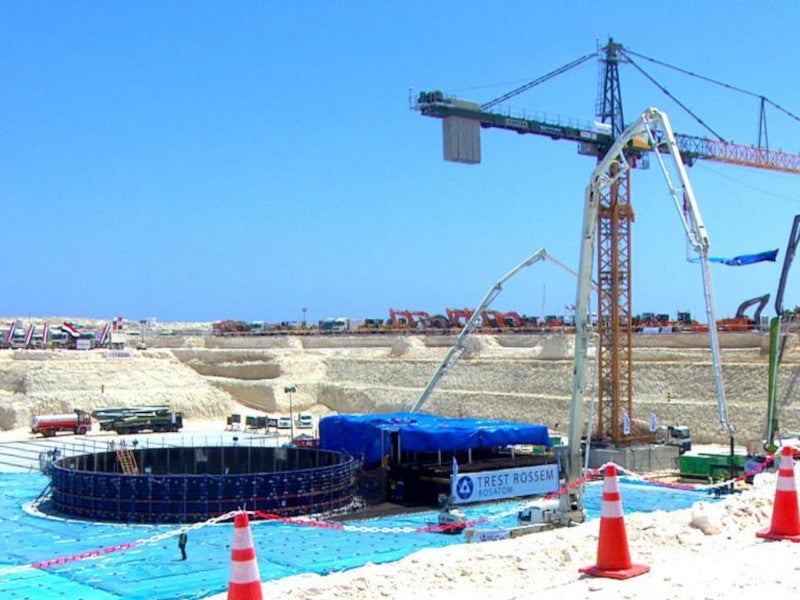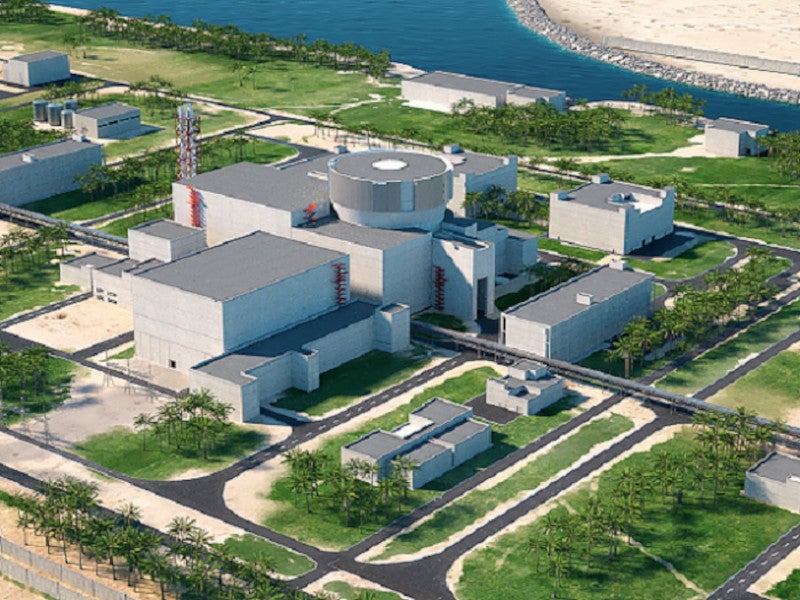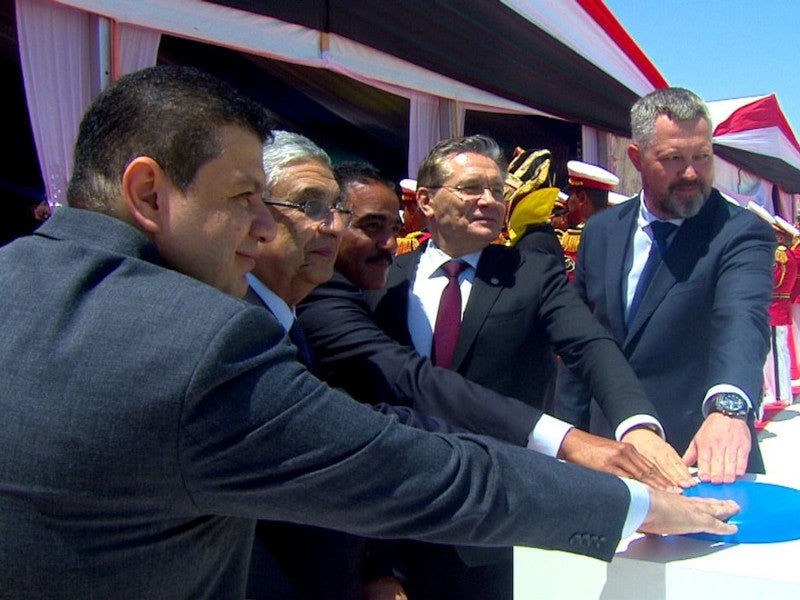El Dabaa nuclear power plant (NPP), Egypt’s first nuclear power project, is under construction in the Matrouh governorate on the Mediterranean coast, 250km west of Alexandria.
The Russian State Atomic Energy Corporation (ROSATOM) is the developer of the $30bn nuclear power plant, which will be owned and operated by the Nuclear Power Plant Authority (NPPA) of the Arab Republic of Egypt.
El Dabaa is Rosatom’s first major nuclear power project in Africa. It will comprise four pressurised water reactors (PWRs) with a total capacity of 4.8GW, which is expected to account for up to 50% of Egypt’s power generation capacity.
The site approval permit for the plant was obtained from the Egyptian Nuclear and Radiological Regulatory Authority in March 2019, while the construction permit for the first unit of the plant was issued in June 2022.
Rosatom started construction of units 1 and 2 in July and November 2022, followed by the pouring of the first concrete for unit 3 in May 2023.
The commissioning of the first unit is expected to begin in 2026 and the plant will be operating at full capacity with all four units by 2030.
The project is expected to boost the country’s economy and industrial development by creating up to 50,000 jobs.
El Dabaa nuclear power project background
The El Dabaa nuclear power project is part of Egypt’s nuclear programme, which began in 1954. The El Dabaa site was selected for the plant in 1983 and the decision for the construction of the plant was announced in October 2007.
The site was approved by the International Atomic Energy Agency (IAEA) in August 2010, but the development was halted due to the 2011 Egyptian revolution and disputes with Dabaa locals.
The government of Egypt signed two contracts with the Russian government for the construction and financing of the El Dabaa NPP in November 2015.
The first stage of the preliminary engineering survey was conducted in 2016, while hydrographic and hydrological survey work was carried in 2017.
El Dabaa nuclear power plant location and details
The El Dabaa nuclear power plant site is in close proximity to rail, road and transmission interconnections. It has low regional seismic activity and sufficient cooling water supply.
The plant will consist of four VVER-1200 nuclear reactors of AES-2206 design, which are capable of producing 1.2GW each. The first unit is expected to begin commercial operations in 2026 while commissioning of the remaining three reactors is scheduled for 2029.The VVER-1200 reactor is a third-generation pressurised water reactor that is fully compliant with all international safety and post-Fukushima IAEA requirements. It is designed to withstand the crash of a 400t airplane or earthquakes up to an intensity of 9 on the Richter scale.
The design lifetime of the plant will be 60 years.
Financing of El Dabaa nuclear power plant
Russia will fund approximately 85% of the construction cost of the El Dabaa nuclear power project. It will provide a $25bn loan, under a financing agreement signed between the Ministry of Finance of Egypt and the Ministry of Finance of the Russian Federation. The loan is repayable over a period of 22 years at an interest rate of 3% a year.
The remaining 15% will be raised by Egypt from private investors.
Contractors involved
The Ministry of Electricity and Renewable Energy of Egypt signed an agreement with Russian state-owned company ROSATOM to build, finance and operate the nuclear plant in November 2015. Notices to implement the previously signed contract were signed on December 2017.
The contract also includes a supply of nuclear fuel over the plant’s entire operational life and assistance for the operation and maintenance of the plant for the initial ten years of operation. ROSATOM will also build storage and supply containers for storing spent fuel.
Gowling WLG has acted as the legal adviser in the negotiation of the contracts for the El Dabaa nuclear power plant since November 2015. The contracts included engineering, procurement and construction, spent nuclear fuel, nuclear fuel supply and operations support and maintenance.
The EPC contract was awarded by the NPPA of Egypt to JSC Atomstroyexport in December 2016.
ROSATOM Engineering Division is the general designer and contractor for the project.
Worely, a professional services company based in Australia, provided consultancy services for the project.
Bulgarian engineering company GCR assisted Worely in reviewing licensing and technical documentation including the preliminary and probabilistic safety analysis reports for the project.






